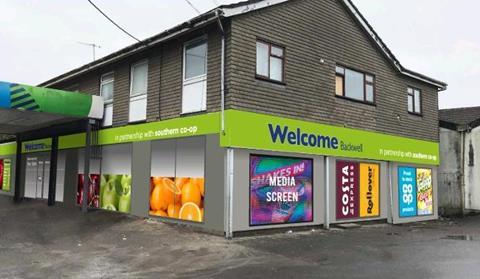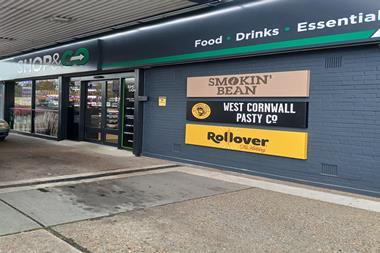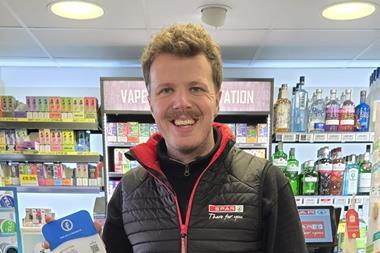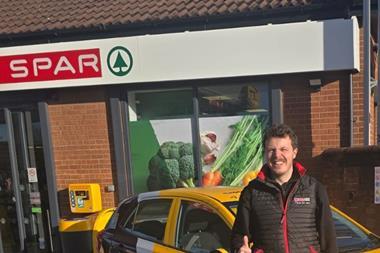
Ambitious forecourt operator Seevaratnam Muresh is opening his sixth freehold site next month: a redevelopment of an acre plot near Bristol after a campaign by locals to keep it as a petrol retail outlet.
The previous owners of the Harvest Energy forecourt in the village of Backwell had wanted to retire after 43 years running the business and had sought planning permission to replace it with seven homes.
However, a group of residents, keen to prevent the loss of a local amenity, fought to prevent the application going through, sending a petition to local MP Dr Liam Fox. The residential plan was refused by the local council and Seevarantnam, seeing the site’s potential, stepped in last year.
The property is beside the Nailsea and Backwell train station which has no food and drink facilities, nor toilets, and it has a primary and secondary school on its doorstep.
Despite the potential passing trade, under the previous owners the forecourt was only open at weekends for part of Saturday, and from 8am to early evening on weekdays.
As soon as Seevaratnam completed on the site on January 26 he set about £600,000 of renovations, with the store closed until May 8 for its official opening.
He has kept the nine staff, retained Harvest Energy fuel, and joined with Co-op Southern to take its Welcome Co-op fascia and own-label range, which he says is a good fit with his affluent clientele.
The £1.6 million purchase included a 0.65 acre plot behind the forecourt where the Backwell Motors’ MOT and repair centre will be run by the former owners until they retire in another two years.
Plans on the 0.35 acre forecourt, which serves a rural community, include extending the canopy and introducing another island with two more pumps. This will increase the number of pumps to eight on four islands, selling red diesel, alongside unleaded, super unleaded and diesel.
The site was selling around 3,500 to 5,000 litres a week of red diesel with a lot of farms and stables nearby, and that was with limited opening hours, said Seevaratnam, a qualified accountant who acquired his first freehold site in Edgware, north London, in 2005, after starting out in the forecourt world as a part-time cashier 11 years before.
With the extra capacity and extended opening hours from 6am to 11pm, Seevaratnam expects output will increase across the fuel types from around one million litres a year currently to at least three million litres. “I hope to bring it up to four million litres. My other sites are seven to eight million litres, but I don’t think I will achieve that here,” said Seevaratnam.
Keeping fuel prices 1p to 2p less than local supermarkets, as he does at his other sites, should also boost sales, he believes. Currently he is charging 145.7p a litre on unleaded and 155p on diesel across his estate, which includes sites in north London, Hampshire and Wales.
“Because my annual volumes are strong at 150 million litres over the next five years, my cost is almost flat so I don’t make huge margin on prices, which means I pick up volume very quickly,” he said. “I have seen volumes up by 20-25% at sites close to Asda where pay at pump has been introduced and customers still want to use cash,” he added.
Seevaratnam plans to have parking for 10 to 15 vehicles, and is applying for planning permission to lease out a plot of land behind the shop to a hand car wash and valeting business. He says that there is a need for this service with the area only having two machine washes at a nearby site.
The shop’s retail space meanwhile has been extended from 800 sq ft to 2,100 sq ft, by knocking through a number of ancillary rooms. There is another 1,500 sq ft given over to an office, a food preparation area, a freezer room, a chilled room, a staff kitchen and toilets.
Big brands have been added, including Costa coffee, Rollover hotdogs, Calippo Slush, and a Delice de France bake-off.
Around £300,000 of the budget went towards redecoration, fridges and freezers, and kitting out the chilled and frozen rooms, and a disabled customer and staff toilet.
Included are two chest freezers of ready-meals from Fayrefield Foods, an eight door beer and wine chiller, and a four door food to go fridge.
A survey by Co-op Southern estimated that sales could increase from around £2,500 a week before, to £35,000 in its first year, rising to £50,000 in its fifth.
Seevaratnam plans to introduce solar panels and a battery unit with the hope of covering over half of his electricity costs. There will be an £18,000 electronic media screen – 2m wide and 1.6m deep – facing the station platform and highlighting a rolling programme of deals and services. And he is spending £26,000 on electronic shelf edge labelling to be installed in the next six months. “Commuters will be my key focus and the screen will encourage train passengers to pop in to use our toilet, buy a coffee, a snack or an evening meal,” he said.
With the Backwell project nearing completion, Seevaratnam has his sights on two further acquisitions: one in Bristol city centre which he is about to exchange on and another near Gloucester, which he has paid a holding deposit on.
Going by his track record, it is unlikely his ambitions will stop there.
































